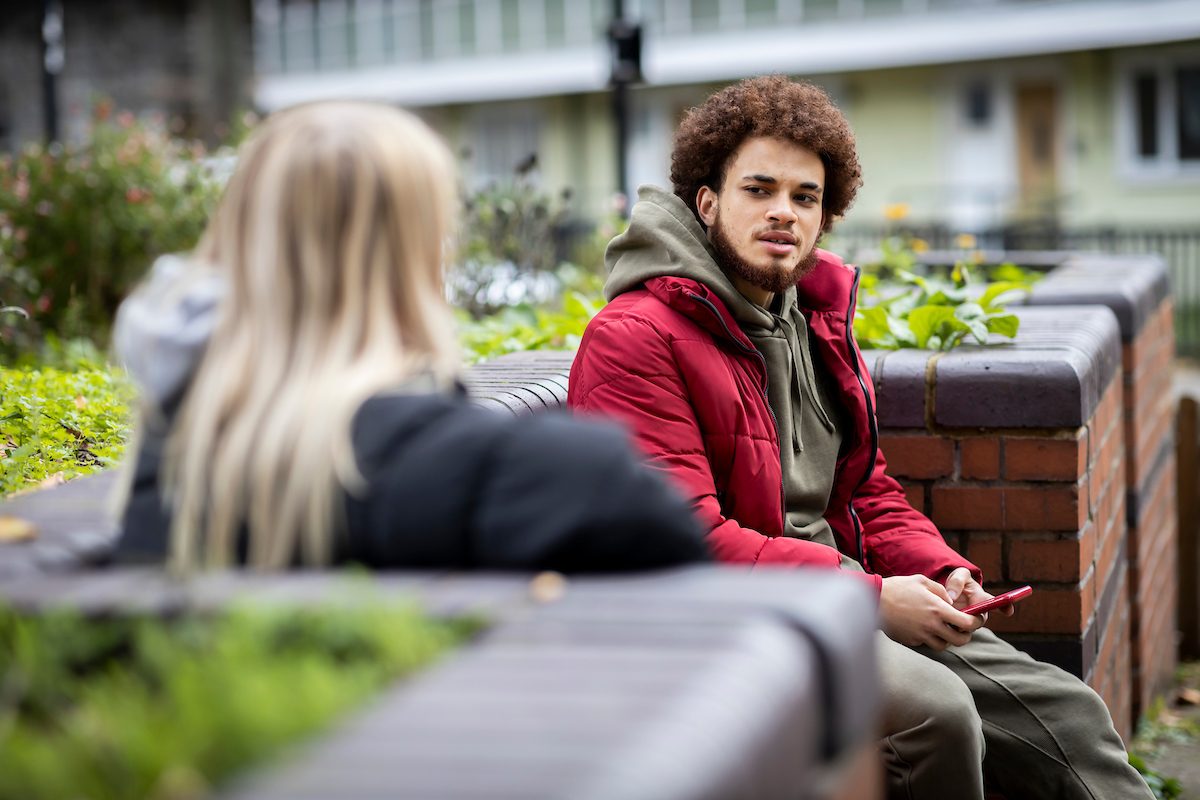Overdosing
When you're tripping things can be pretty hazy, but you need to keep some brain cells available for if something goes wrong. As soon as you think someone’s overdosing, call 999; no hesitation necessary. Don’t even think about what the ambulance will say, you can deal with that later. Those moments are often life or death situations, so it’s vital to act quickly. We’re here to talk you through what to do.

My friend is overdosing, but I’m scared I’ll be arrested if I get help.
You should never let fear of getting into trouble stop you from helping a friend who has taken too much. How quickly you act could be a matter of life or death. The hospital has no obligation to tell the police about your drug taking. The most important thing in that moment is that you saved someone’s life. Don’t worry about the possible repercussions because, odds are, the doctors and police will understand your position and treat you kindly.
The doctor will only tell the police about drug use if they think a more serious crime has taken place. For instance, if loads of people overdose who were all at the same party, there might be cause for an investigation. Or, if people in the same region suddenly start to overdose on the same drug, it suggests a contaminated batch of drugs may have entered the country.
How do I know if I’m overdosing on drugs?
If you’re the one who’s overdosing, you’ll be completely unaware of how much danger your life is in. So it’s up to your mates to look out for the warning signs. These vary from drug to drug, but common signs to watch out for include:
- Unresponsiveness
- Becoming increasingly drowsy
- Heart rate either gets slower or speeds up manically
- Getting very agitated and wound up
- Vomiting
- Losing consciousness
- Slow breathing
- Severe chest pain
As soon as you notice one of these signs in your mate, call 999 – we’re deadly serious.
What should I do if my friend has overdosed?
Get help. Quickly.
Ring 999 and ask for an ambulance. Say it’s for a suspected overdose. Try to put the person in the recovery position while you wait for help to arrive. Getting them to lie on their side helps keep the airways open and stops them choking on their own vomit or tongue. Ignore the rumors about putting the person in a bath of cold water to bring them round. Wait for the professionals to arrive. If they’re seriously overdosing, unfortunately there’s not much you can do to help because of the fragile state they’re in.
It’s very important you get a sample of what your friend has taken to give to the doctors. This will make it much easier for them to know what to do and prevent a drug overdose death.
What happens at the hospital if you’ve overdosed?
Don’t believe the movies. They don’t pump the stomachs of overdose victims nowadays. “It’s a big scare story, the sort of thing they show on ER,” says Dr Amir Hassan, an A&E consultant at Epsom and St Helier hospital, Surrey. “It’s a brutal process, so we don’t use it anymore.”
If you’ve OD’d on heroin, there’s an antidote the doctors can give you to reverse the effect of the drug. With other drugs, it’s a matter of keeping you alive while the drug careers through and out of your system. This involves keeping you stable, giving you plenty of fluids, and sometimes putting a tube down your throat to help you breathe.
What causes a drug overdose?
Overdoses can be deliberate, but accidental overdoses are common too. The word ‘overdose’ implies you have to guzzle a massive amount of drugs – but that isn’t necessarily true. Overdose commonly occurs when you don’t know what your body can take and how strong the drugs are.
“What generally happens is the patient didn’t really know what they were taking,” says Dr Hassan. “If people haven’t taken a certain drug before, they’re not going to know how it will affect their body. Plus they’ve not had the chance to become acclimated to it.”
Illicit drugs don’t have quality or quantity control. This increases the risk of an overdose. If you buy a 500mg of paracetamol from Boots, you know for sure you’re getting exactly 500mg of paracetamol. But there’s no way of knowing how much coke is in your cocaine, or how pure your heroin is until you take it. For this reason, overdose deaths are more common with harder drugs.
What drugs are more likely to cause an overdose?
Heroin and opioid overdoses are pretty common in the UK and the US. In fact, heroin is probably the most dangerous in terms of causing fatalities. But the other high OD-offender isn’t what you’d expect.
“Alcohol is almost worse than heroin,” says Dr Hassan. “The problems it causes are by far the worst. And the fact it’s socially acceptable and easy to get hold of exacerbates things. People commonly drink to excess and also combine alcohol with other drugs, which makes it much easier to overdose.” It’s a scary truth, but death rates as a result of alcohol are much higher than those related to drugs.
Will overdosing stop someone using drugs in future?
In Hollywood, a near-death experience can be enough to send someone running down the street in their pyjamas, shouting they’ve learnt the error of their ways before volunteering for Oxfam. But in the real world, a drug overdose very rarely stops someone from using.
“I have to say, with all the overdoses I’ve treated, it’s never been a wake-up moment,” says Dr Hassan.
“The patient only ever really remembers the high. They don’t remember those hours where a team of people were struggling to keep them alive.They aren’t fully aware of just how close to dying they came.”
Next Steps
- Chat about this subject on our Discussion Boards.
By Nishika Melwani
Updated on 28-Aug-2021
No featured article














